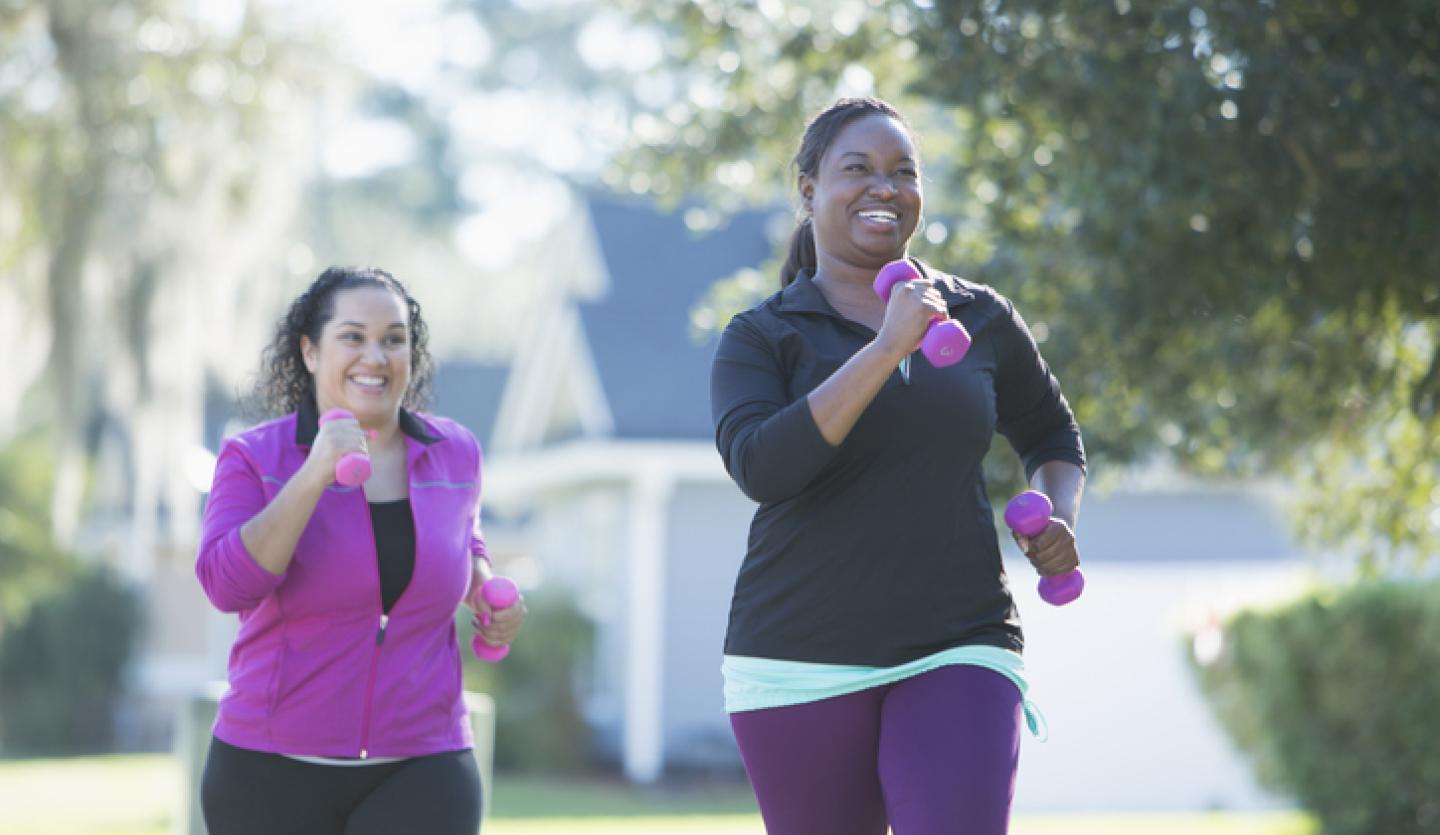“Regular exercise is good for building endurance, maintaining a healthy weight, and helping to reduce the risk for health conditions like heart disease and Type 2 diabetes,” said John Cuellar, MD, Catholic Health Orthopedic Surgeon. “Exercise also has numerous benefits for bone health when we are young and as we age.”
Why is bone health important?
Bones shape and support our bodies. Together with our muscles and joints, they allow the body to move. Bones also protect organs and store essential minerals like calcium. Bones constantly change by making new bone while old bone breaks down.
Why is bone health important when we are young?
Building strong and healthy bones from childhood into adolescence positively impacts bone health. When we are younger, new bone is made faster than the breaking down of old bone, and bone mass increases.
Peak bone mass—maximum bone size and strength—typically happens around age 30. If you have a high amount of bone mass by age 30, you are less likely to develop osteoporosis as an adult.
“Our genes largely determine our peak bone mass,” said Dr. Cuellar. “But diet, exercise, and recommended calcium and vitamin D levels also play critical roles when we are young in strengthening our bones and protecting them as we age.”
Is bone health still important after age 30?
By age 40, we start losing more bone mass than we gain. Taking steps to prevent bone loss and improve bone health as we get older is especially important to:
- Improve posture
- Improve coordination
- Improve balance and reduce the risk of falls
- Reduce the risk of broken bones
“Regardless of your age, you can take steps to prevent bone loss and improve bone health,” said Dr. Cuellar.
How does exercise help bone health?
Similar to how exercise builds muscles, exercise does the same for bones—making them denser and stronger.
“Start slow, build yourself up, and remember that some level of exercise is better than none,” said Dr. Cuellar. “Over time, as your endurance increases, you can create a comprehensive routine that includes exercises for strength, flexibility and balance.”
He recommends talking to your doctor about physical therapy, which can be a helpful way to learn safe and effective exercises and proper duration, technique and form.
What exercises help bone health?
Before starting any exercise program, talk to your doctor to reduce your risk for overexertion or injury, which is especially important if you have an existing health condition, like heart disease or osteoporosis.
Strength training exercises
Strength training focuses on resistance exercises that strengthen muscles, tendons and bones. It helps with posture and bone density. A strength training routine uses resistance bands, free weights and exercises like push-ups that use your body weight.
Weight-bearing exercises
“While weight-bearing exercises are good for anyone, they especially benefit young adults,” said Dr. Cuellar. “In the teen years and up to age 25, walking, running or participating in team sports strengthens bones and helps prevent bone loss as we age.”
For older adults, weight-bearing exercise remains vital for bone strength and preventing osteoporosis.
Weight-bearing exercises focus on aerobic activities done on your feet, like walking, stair climbing, dancing and using an elliptical machine. Or sports like tennis, pickleball and golf. Because your bones hold your weight, these exercises make the bones work harder. They strengthen bones and slow bone loss.
High-impact activities like jogging and running provide additional benefits for strengthening bones, but people with osteoporosis should avoid these activities.
Stretching and flexibility exercises
Stretching helps prevent injury by improving flexibility and the range of motion in the joints. Stretches should be done gently and slowly, without bouncing, between five to 10 minutes. Stretch before working out and at the end of an exercise routine for maximum benefit.
Stability exercises
Stability exercises help improve balance, which is especially important as we age and are at risk for falls. These exercises should not be done unsupervised by adults at high risk for falls, including those with osteoporosis.
How else can I take care of my bone health?
“Exercise is one of many lifestyle choices that help strengthen and protect our bones,” said Dr. Cuellar. “You also need to make healthy food choices, maintain a healthy weight, keep up with routine health screenings and talk to your doctor about supplements or medications.”
Vitamin D. It is also called the “sunshine vitamin” because 10 to 15 minutes of sunlight two or three times a week can produce sufficient vitamin D for stronger bones. However, some people have limited exposure to the sun or need to avoid exposure. Vitamin D is only in a few foods, so your doctor may recommend a daily supplement.
Calcium. Our bones store 99 percent of our body's calcium. Since our bodies cannot make calcium, we must get it from foods, supplements, or a combination. Learn more about calcium recommendations.
Bone density screening. A screening can help determine the risk for osteoporosis for women of menopausal age. Talk to your doctor about when a screening is right for you.
Lifestyle choices. Maintaining a healthy weight reduces the risk of bone loss, fractures, and falls. Additionally, not smoking and limiting alcohol helps prevent the loss of bone mass and reduces the risk of broken bones.
Medications. Your doctor can advise if prescription medication to slow bone loss and increase bone strength is right for you.







